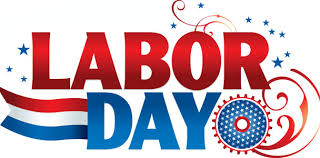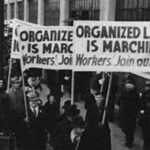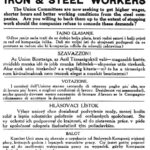
Today we celebrate Labor Day. But what are the origins of the day?
If you answered people wanted another day to barbecue, you're wrong. If you answered the official end of summer, you're also wrong.
The roots of Labor Day grew out of violent clashes between labor and police during the Haymarket Riot in 1886, when thousands of workers in Chicago took to the streets to demand an eight-hour workday. (See Fun Fact #2 below)
The confrontation became a symbol of the international struggle for workers' rights. Labor organizers around the United States were trying to get the workday reduced to eight hours. Many workers toiled seventy or more hours a week, including children.
During the disturbance, a bomb, thrown into the crowd, killed seven policemen and injured 60 others. Police and workers fired on each other. In the end, authorities arrested eight anarchists. Convicted of conspiracy to murder, they were sentenced to death; four were executed and one committed suicide.
The most immediate impact of the Haymarket Riot was an increase in anti-union sentiment as the labor movement became associated with anarchists and violence.
 The earliest recorded U.S. strike occurred in 1768 when New York journeymen tailors protested a wage reduction. The first sustained trade union — the Federal Society of Journeymen Cordwainers (aka shoemakers) — began in Philadelphia in 1794.
The earliest recorded U.S. strike occurred in 1768 when New York journeymen tailors protested a wage reduction. The first sustained trade union — the Federal Society of Journeymen Cordwainers (aka shoemakers) — began in Philadelphia in 1794.
However, as so often happens, the law did not keep up with events. When, in 1806, requests for wage increases caused factory owners to sue on the charge of “criminal conspiracy,” the court ruled in favor of the owners.
Other court decisions declared unions to be illegal constraints on trade.
Many early unions restricted membership to white American men. In fact, rules ensured any good jobs would not go to immigrants, women, and people of color. In 1867, the National Union for Cigar Makers was the first union to accept women and black workers. And in 1912, the International Brotherhood of Electrical Workers, which had been organizing in the telephone industry, accepted telephone operators who were primarily women.
The 1913 Colorado Coalfield War saw Colorado coal miners, living in a tent city in Ludlow, Colorado, go on strike against poor working conditions. In April 1914, the Colorado National Guard and guards hired by the mining companies attacked the tent city, killing 21 inhabitants. The miners fought back until the strike ended in December 1914, with no concessions made to the workers. The death toll estimate is between 69 and 199.
Ironically, President Woodrow Wilson signed the Clayton Antitrust Act into law on Oct. 15, 1914, allowing employees to strike and boycott  their employers.
their employers.
In addition to antitrust regulations, the Act specifies that labor is not an economic commodity. Further, it upholds issues helpful to organized labor, declaring peaceful strikes, picketing, boycotts, agricultural cooperatives, and labor unions as legal under federal law.
While labor unions grew in power and number from the Civil War through World War I, they declined during the 1920s as firms promoted company unions and provided increased benefits to workers under what was known as "welfare capitalism." The Roaring 20s had an economy expanding rapidly on credit, making it possible for business owners to hire many more employees at higher wages making it harder for unions to attract new members.
The Great Depression quickly reversed this trend.
Fun fact: The largest strike in U.S. history (by number of workers) was the Steel Strike of 1959, which lasted 116 days between July and November 1959.
Fun fact: On 25 June 1869, President Ulysses S. Grant issued a Proclamation stating that the wages of all laborers, workmen, and mechanics employed by or on behalf of the Government of the United States and paid by the day could not be cut when their workday was reduced to 8 hours under an 1868 Act of Congress.